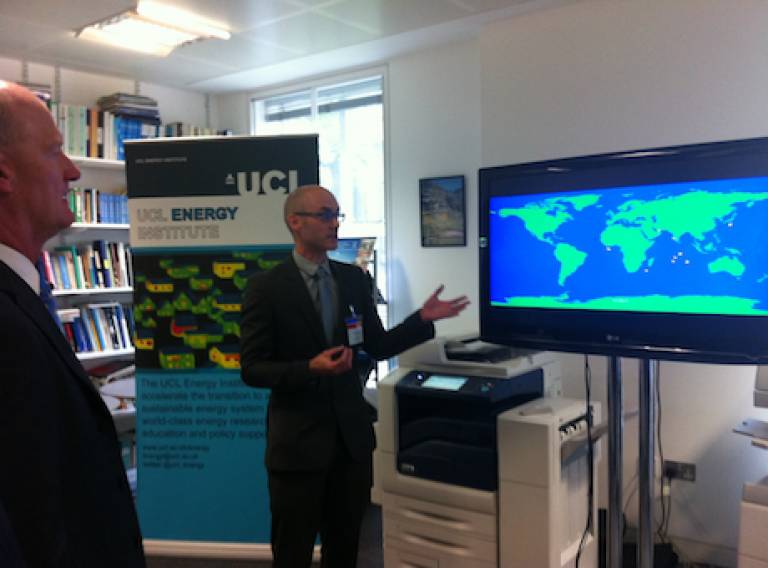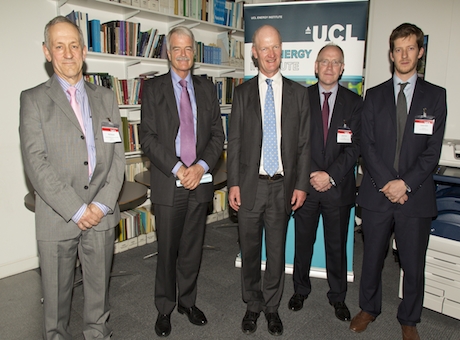Universities and Science Minister visits UCL-Energy as part of £2m marine technology project
11 June 2013

The Minister for Universities and Science was today (Tuesday 11 June) welcomed to the UCL Energy Institute for an update on a £2m marine technology project, which seeks to increase the efficiency of British shipping by more than 30%.
During the visit Rt Hon David Willetts MP met with members of UCL, Rolls-Royce and the Energy Technologies Institute (ETI) to hear about the project which is focusing on developing a range of highly efficient concept vessels by combining state of the art data and modelling techniques from academia with commercial knowledge and technology development expertise from industry. The work carried out by UCL is being undertaken by researchers from both UCL-Energy and UCL Mechanical Engineering.
Tristan Smith, Lecturer at UCL-Energy, leading the project at UCL, said: “This project builds on research carried out in a large multi-disciplinary project Low Carbon Shipping – A Systems Approach, which started in 2010, funded by the RCUK Energy programme and a number of industry partners. This new development demonstrates the importance of previous funding and close collaboration with industry in generating new technologies. It is extremely rewarding to be deploying models and analysis built originally for research purposes in real-world commercial applications which have the potential to produce significant reductions in the UK's greenhouse gas emissions.”

To date, the project has completed the creation and integration of a full-scale shipping model that is focussed on the shipping activity and vessels involved in the UK’s sea-based transportation needs. This model has leveraged Rolls-Royce’s technology knowledge at a vessel level and combined with UCL’s capabilities to understand and model the shipping network. This work has built upon the Low Carbon Shipping project led by UCL and funded in part by the Engineering and Physical Sciences Research Council (EPSRC).
The vessel types under study are typical of those used to transport goods to, from and around the UK coastline. If successful, this project could lead to a further £8m being invested into a large-scale demonstration of a best vessel concept and the technologies it uses.
Shipping currently contributes £26.5bn to UK GDP1 and could account for as much as 11 per cent of Britain’s total greenhouse gases by 20502 unless improved efficiencies are developed.
This project, which has now been running for almost 12 months, is part of a £40m ETI transport technology programme designed to improve heavy duty vehicle (HDV) efficiency. Launched last year by Business Secretary, Dr Vince Cable, the programme is designed to look at improving systems integration and technology development across the HDV sector, with an aim to increase efficiency in land and marine vehicles by up to 30%.
Images:
Top: David Willetts MP meets UCL-Energy PhD student Eoin O'Keeffe
Bottom: L-R: Paul Greaves (Rolls-Royce), Malcolm Grant (Provost, UCL), David Willetts MP, David Clarke (ETI), Tristan Smith (UCL-Energy)
 Close
Close

